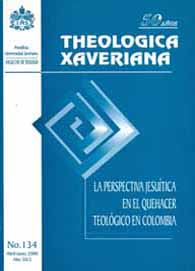Abstract
Hoy el «rescate de la subjetividad» o la «vuelta al sujeto» es signo de los tiempos. No nos referimos al sujeto en términos abstractos, teóricos o individualistas; hablamos de un sujeto integral que piensa, siente, cree, actúa, se relaciona con los otros, con el mundo y con Dios. Este artículo pretende examinar los presupuestos epistemológicos para esta visión de sujeto integral. Dicho examen concluye que la conciencia humana no es sólo fuente del conocimiento teórico sino también de todas sus aplicaciones prácticas y, ciertamente, de toda actividad mediada por los sentimientos en tensión hacia los valores. Por tanto, apropiarse de la conciencia intencional es la posibilidad de rescatar una subjetividad integral que responda a los desafíos actuales.
This journal is registered under a Creative Commons Attribution 4.0 International Public License. Thus, this work may be reproduced, distributed, and publicly shared in digital format, as long as the names of the authors and Pontificia Universidad Javeriana are acknowledged. Others are allowed to quote, adapt, transform, auto-archive, republish, and create based on this material, for any purpose (even commercial ones), provided the authorship is duly acknowledged, a link to the original work is provided, and it is specified if changes have been made. Pontificia Universidad Javeriana does not hold the rights of published works and the authors are solely responsible for the contents of their works; they keep the moral, intellectual, privacy, and publicity rights.
Approving the intervention of the work (review, copy-editing, translation, layout) and the following outreach, are granted through an use license and not through an assignment of rights. This means the journal and Pontificia Universidad Javeriana cannot be held responsible for any ethical malpractice by the authors. As a consequence of the protection granted by the use license, the journal is not required to publish recantations or modify information already published, unless the errata stems from the editorial management process. Publishing contents in this journal does not generate royalties for contributors.


